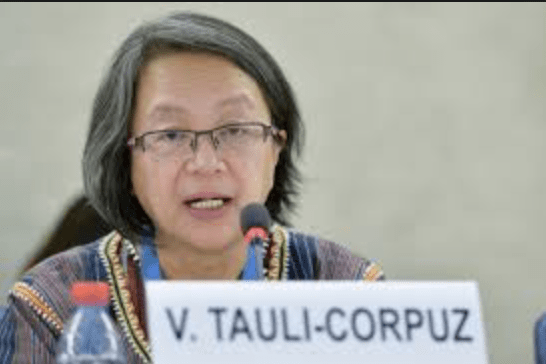
HRC39 – SR on indigenous peoples – MRG’s statement on criminalization of indigenous human rights defenders
UN Human Rights Council
39th session
Interactive Dialogue with the Special Rapporteur on the rights of Indigenous Peoples and the Expert Mechanism on the Rights of Indigenous Peoples (items 3 & 5)
Mister President, Madame Special Rapporteur,
Minority Rights Group (MRG) warmly welcomes your thematic study on attacks against and criminalization of indigenous human rights defenders.
Our experience working with indigenous communities around the world led us to the conclusion that the criminalisation and attacks on indigenous peoples usually occur in a multi-layered and multi-targeted manner. Single instances hardly ever occur in isolation.
There will often be rhetoric – sometimes even from the highest level – denouncing indigenous peoples, their rights and their representatives. There will also often be legislation put in place, e.g. states of emergency, anti-terror laws and/or laws against foreign funding of NGOs, laws on freedom of assembly, which will be used to criminalise advocacy by indigenous peoples’ representatives. Indigenous traditional activities, such as grazing, hunting and gathering, are routinely criminalised. Peaceful protests are also often met by excessive use of force. Indigenous activists who are arrested often face unfair trials. And examples from around the world have led to deaths in detention of indigenous community activists – with inadequate investigation of the circumstances or any justice for family members. These aspects together create a generalised climate of impunity, encouraging other acts of violence.
Examples are unfortunately manifold. In Egypt, Nubian indigenous activists have faced attacks, harassment, arbitrary arrests and detention over the past four years as a consequence of their peaceful campaign claiming their right to return to the remaining parts of their ancestral lands located around Lake Nasser, southern Egypt. In Bangladesh, indigenous activists have been the target of numerous attacks at the hands of both state and non-state actors. This is particularly the case for indigenous activists in the Chittagong Hill Tracts (CHT) working to address a range of violations to their rights in a heavily militarized context. Various laws related to anti-terrorism, but also those restricting foreign donations and use of information and communication technologies, are used to criminalize activities of indigenous human rights defenders. The resulting hostile environment has facilitated attacks against defenders, as well as allowed for a climate of impunity for perpetrators.
In conclusion, we would like to echo your recommendations. Because attacks often result from an environment created by a complex set of legislation, policies, practices and political discourses, eradicating this phenomenon requires a comprehensive response at all these levels.
I thank you.